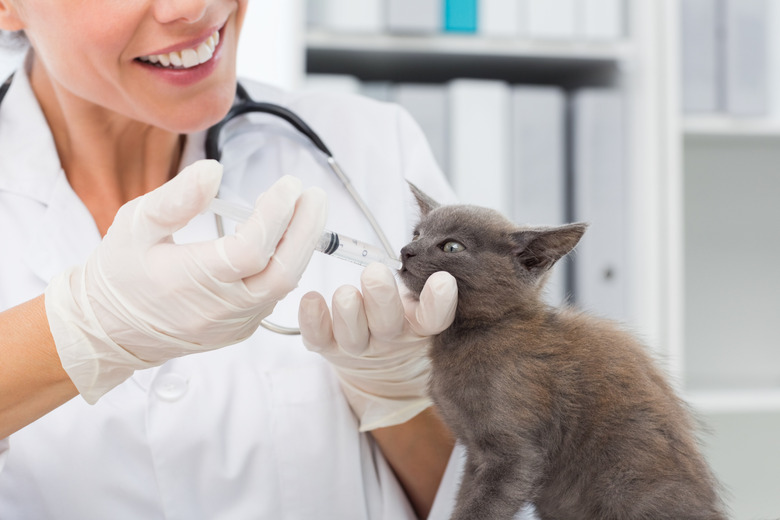What Is Baytril?
Enrofloxacin, marketed under the brand name Baytril, is a common medication used for animals. If your veterinarian has recently directed you to give Baytril to your pet, you might be wondering what Baytril is. This drug is part of the fluoroquinolone antibiotic class, FDA-approved for veterinary medicine. Available by prescription only, it's used in dogs and cats (as well as some large animals) to treat tough bacterial infections. While generally safe and effective for veterinary use, humans should not take this drug. Baytril is toxic to humans. (The human-safe equivalent of enrofloxacin is ciprofloxacin).
How does Baytril work?
How does Baytril work?
As a broad-spectrum antibiotic, Baytril can eradicate both gram-negative and gram-positive bacteria. Available as either tablets or an injectable, Baytril works by stopping bacteria from transcribing DNA. The drug renders it impossible for an enzyme assigned to this job to read the DNA, causing the bacteria to die. The drug has the ability to penetrate into all fluids and tissues in the animal's body.
What is Baytril used for?
What is Baytril used for?
If your pet is diagnosed with a skin infection, respiratory infection, or urinary tract infection, your veterinarian might prescribe Baytril. It's also commonly prescribed for stubborn ear infections, often at high doses. If your dog or cat has an abscess with strains of Staphylococcus aureus, E. coli, or Pasteurella multocida, Baytril can kill the bacteria. Some of these bacteria along with others also vulnerable to Baytril cause cystitis in the bladder or rhinitis or pneumonia in the respiratory system. If your pet is hospitalized, they might receive an injectable formulation of Baytril. If your pet is an outpatient, they can be sent home with enrofloxacin as an oral medication, such as Baytril tablets. Baytril is made by the Bayer company.
Baytril side effects
Baytril side effects
Baytril is generally well tolerated by dogs and cats, but some animals do experience side effects. That's especially true of higher doses used to combat serious infections. In dogs, larger doses of Baytril can cause vomiting and diarrhea. Your veterinarian will most likely advise against giving Baytril on an empty stomach, as this could exacerbate GI upset.
Other possible side effects include loss of appetite and lethargy. Cats receiving high doses of Baytril can develop retinal damage. Long-term use in felines and canines can cause cataract formation. While Baytril can cause crystal formation in urine, these are not the same type of crystals associated with urinary tract disease.
Is Baytril safe for pets?
Is Baytril safe for pets?
Baytril is generally safe for a pet's health, but pregnant or lactating animals should not receive this medication. Dogs under the age of 8 months should not receive Baytril, as the drug can damage growing joint cartilage in canines. This does not appear to be true in cats. Animals with disorders of the central nervous system should not receive this medication, as it can increase the chance of seizures.
To avoid drug interactions, tell your veterinarian about any other medications or supplements your pet receives. Medications or supplements containing zinc, iron, calcium, or magnesium (many of which are found in antacids) prevent Baytril absorption, so wait at least two hours between the administration of Baytril and these substances. The calcium in dairy products works to inhibit Baytril absorption, so don't give the drug with cheese, milk, or other dairy products.
The FDA previously revoked the extra-label (off-label) usage of Baytril in poultry. It is not allowed to be used in animals that are used for food.
The bottom line
The bottom line
If your dog or cat has a bacterial infection — anything from a skin condition to a respiratory infection — your DVM (veterinarian) might prescribe an antibiotic called enrofloxacin, also known by the brand name Baytril. Baytril is a broad-spectrum antibiotic that is usually safe for pets. It does have some possible side effects, such as gastrointestinal upset. In addition, if your pet is pregnant, lactating, or a very young puppy, they should not take Baytril. Speak to your veterinarian regarding any concerns you might have about this medication as well as adverse effects to look out for while your pet is taking Baytril.


